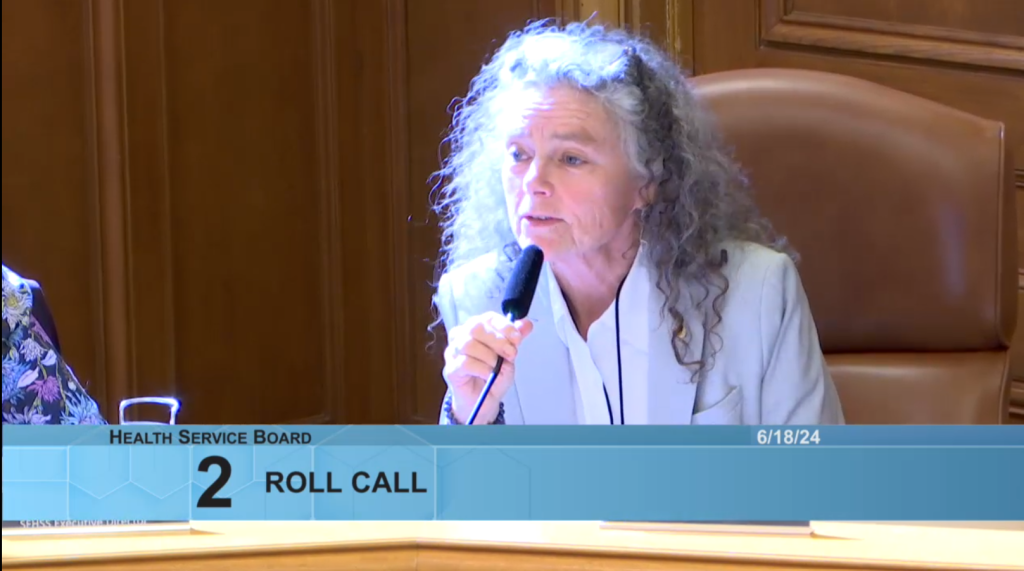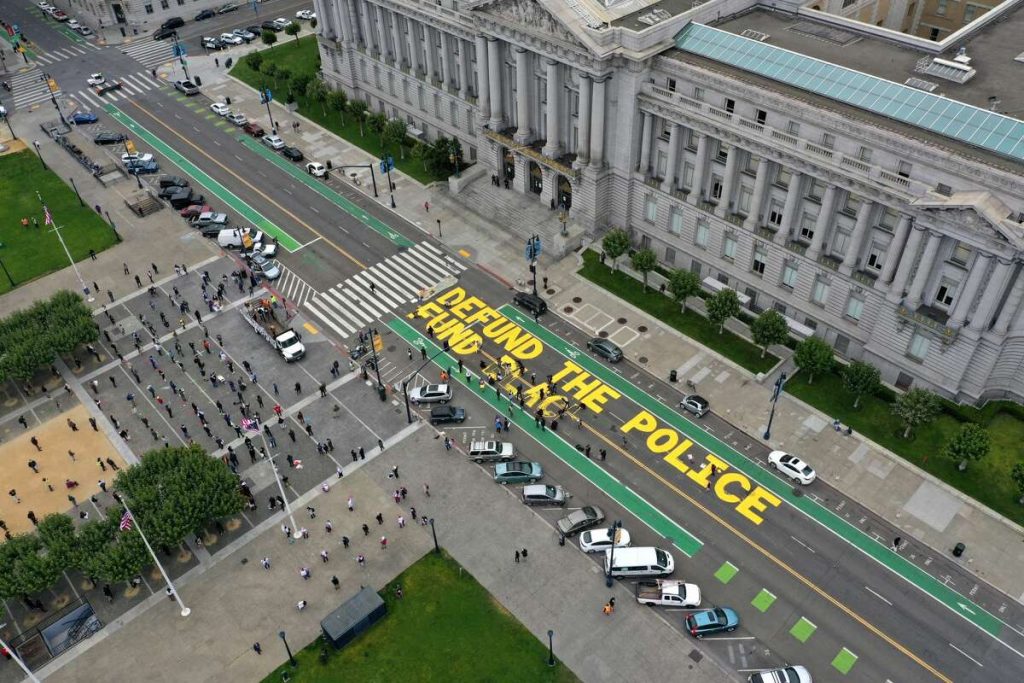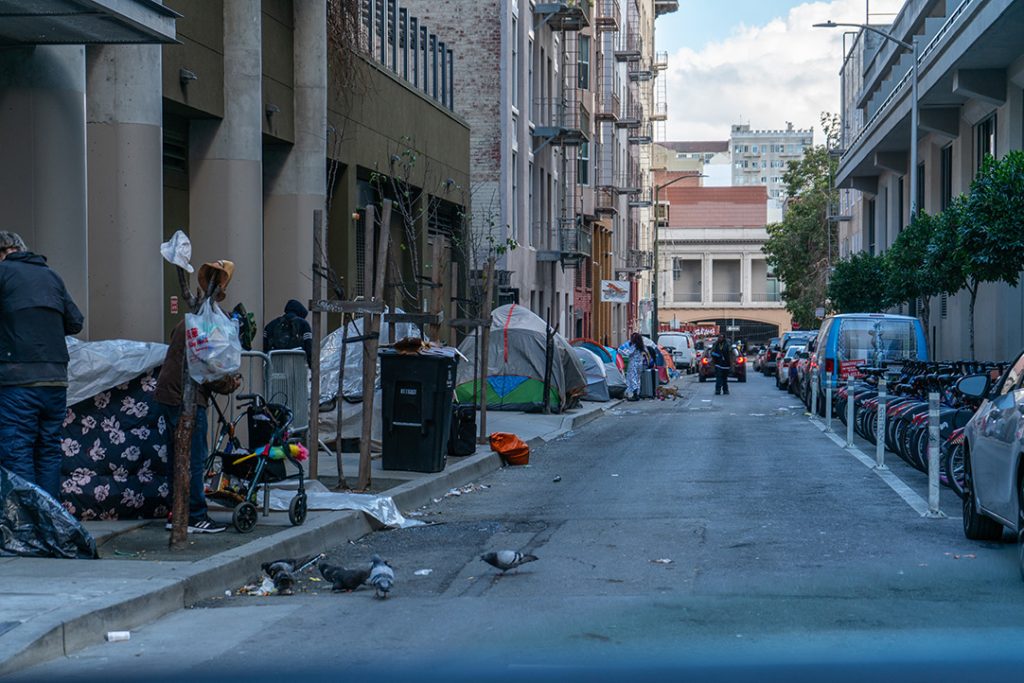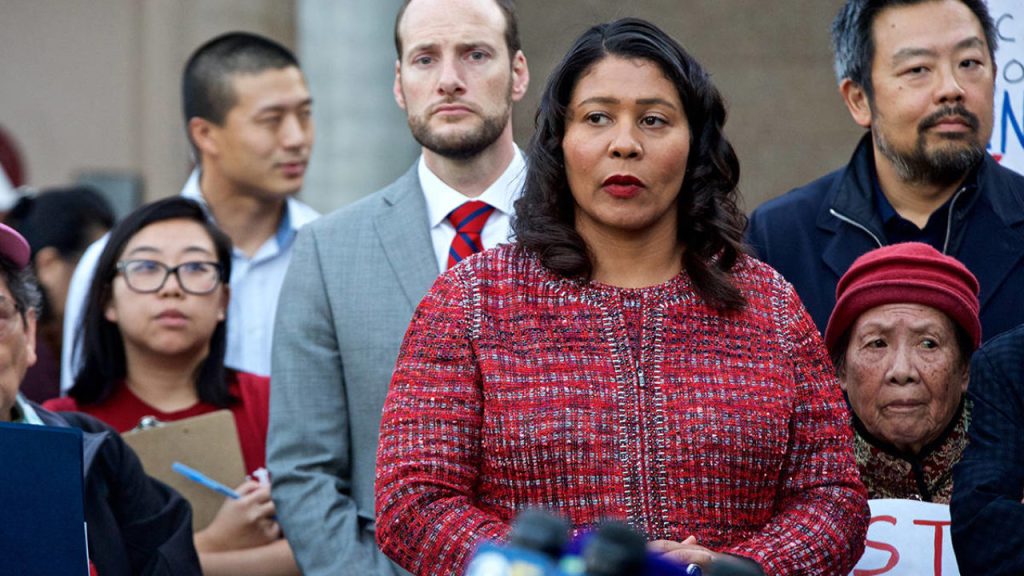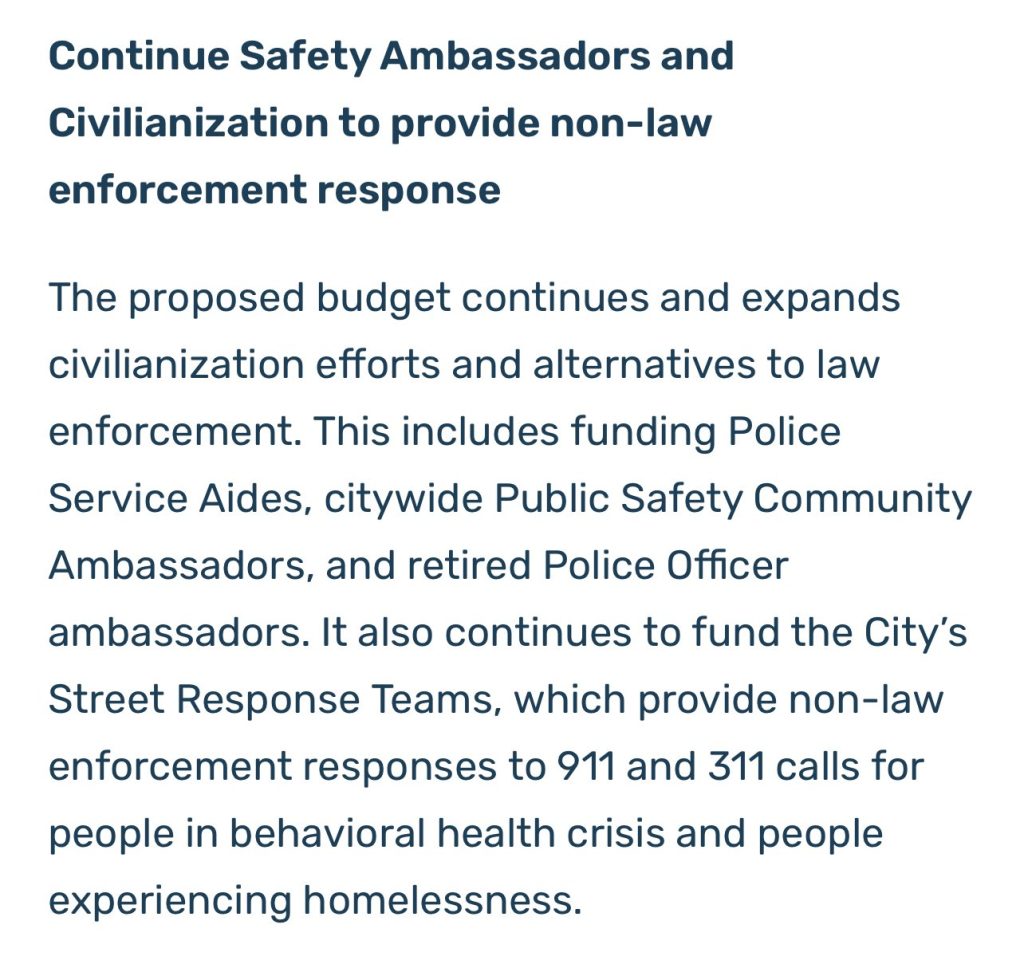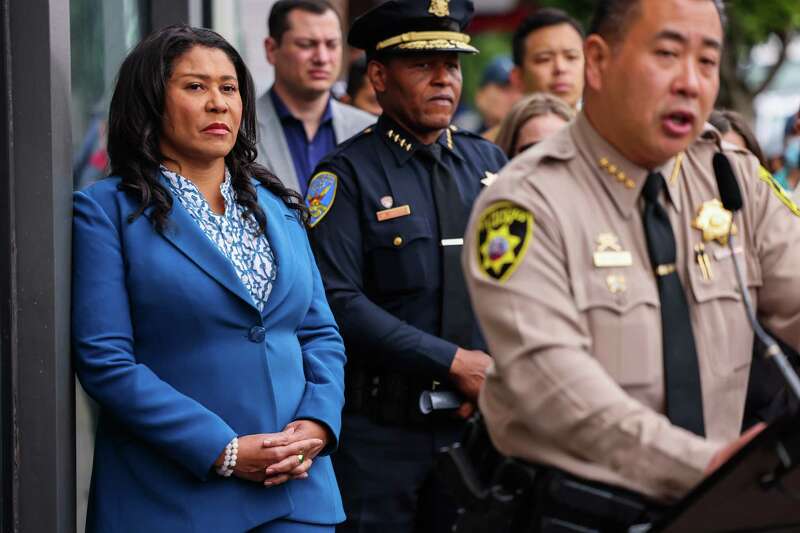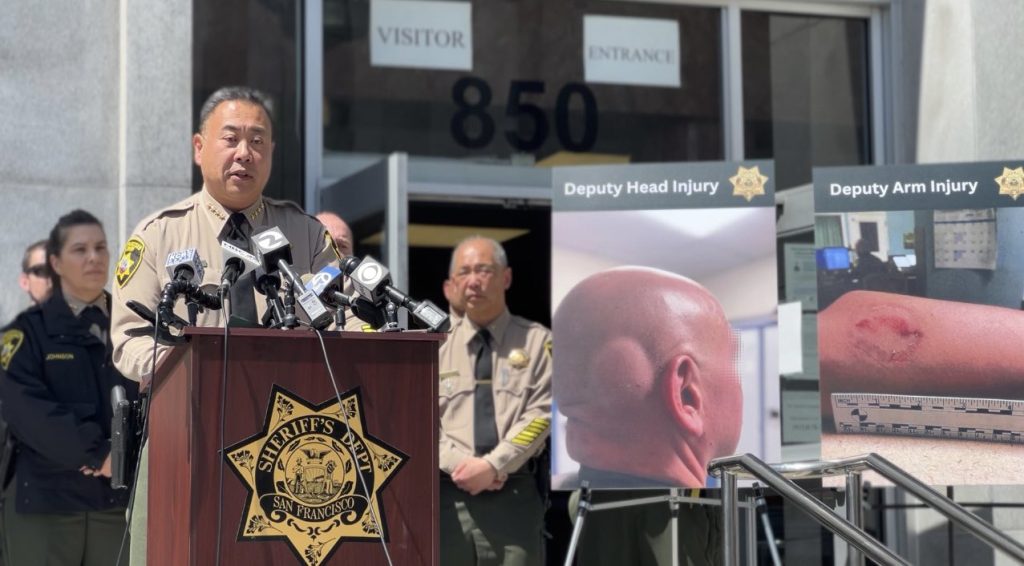San Francisco’s public safety has been in a precarious position due to Mayor London Breed’s approach to handling the city’s law enforcement agencies, particularly the Sheriff’s Office. Despite growing concerns about understaffing, rising violent incidents in jails, and the critical need for better resource allocation, Mayor Breed’s decisions have led to what many see as a strategic defunding of the Sheriff’s Office. This article delves into the details of how this has unfolded.

Civilianizing Police Positions
One of the key moves by Mayor Breed has been the civilianization of police and deputy sheriff positions. By replacing sworn officers with civilians in various roles and introducing so-called “ambassadors” without police powers, the Mayor has significantly reduced the number of operational deputies and police officers. While the intention is to increase the presence of mental health professionals and address crime as a mental health issue, this shift has left police officers and deputy sheriffs struggling to cope with the escalating demands of their jobs. This reallocation of responsibilities has effectively reduced the number of police and deputies available to handle the core functions of law enforcement, further straining the already overstressed system.
Denying Critical Funding Requests
The Mayor’s budgetary policies have directly impacted the staffing levels within the Sheriff’s Office. In recent years, the number of deputy sheriffs has been declining, leaving the department dangerously understaffed. The latest figures indicate that there are currently only 611 deputies, a number far below what is needed to ensure public safety and manage the city’s jails, courts, and booking facilities effectively.
A clear example of this is Mayor Breed’s denial of the Sheriff’s request for $500,000 specifically allocated for recruiting new deputies. This refusal to fund essential recruiting efforts has further exacerbated the staffing crisis, leaving the department unable to attract and retain the personnel needed to function effectively. Without adequate funding for recruitment, the Sheriff’s Office cannot compete with other law enforcement agencies offering better hiring incentives and support.
Pausing Hiring and Promotions
In June 2020, Mayor Breed took the drastic step of pausing all police and sheriff’s hires and promotions to conduct an audit of law enforcement exams to root out bias. While addressing bias is important, this move has significantly hampered the already strained Sheriff’s Office. The pause put on hold exams for hundreds of potential jobs and promotions, leaving 636 people eligible to become deputy sheriffs without the opportunity to be hired or promoted (SF mayor pauses police,…). This strategic pause has created a bottleneck in the hiring pipeline, delaying the entry of new deputies into the force and exacerbating the understaffing issue.
Progressive Justice System and Jail Closures
Mayor Breed’s focus on a progressive justice system has also contributed to the current challenges. She has been a strong proponent of closing jails and opposing the construction of new ones, aiming to reduce incarceration rates. In 2015, she led the effort to reject an $80 million grant from the State Public Works Board to build a new jail, favoring alternatives to incarceration such as mental health treatment and substance abuse programs (San Francisco superviso…).
As a result, San Francisco’s jails are now overcrowded and often on lockdown due to the high number of inmates, many of whom are violent offenders. The facilities were not designed to handle such a high concentration of violent individuals, leading to increased incidents of violence within the jails and making it even more challenging for the understaffed Sheriff’s Office to maintain order and safety. The progressive justice system has also led to several issues:
- Lack of Sunlight: Inmates who do not receive adequate sunlight are at risk for vitamin D deficiency, which can lead to weakened bones, fatigue, and a weakened immune system. Additionally, the lack of natural light exposure can contribute to depression and other mental health issues.
- Limited Recreation Space: Physical activity is essential for maintaining physical and mental health. The lack of recreation space in overcrowded jails leads to a sedentary lifestyle, increasing the risk of cardiovascular diseases, obesity, and other health problems. Mentally, the absence of regular exercise can exacerbate stress, anxiety, and depression.
- Reduced Rehabilitation Opportunities: The shortage of deputies has resulted in inadequate security for rehabilitation programs, including educational classes, vocational training, and religious meetings. Without sufficient deputies to ensure safety and security during these activities, many rehabilitation programs are curtailed or canceled, depriving inmates of critical opportunities for personal development and reintegration into society.
- Crowded and Inadequate Facilities: The remaining jails were not built for maximum security and are ill-equipped to handle the increase in administrative separation inmates and protective custody inmates. This overcrowding and inadequate infrastructure compromise safety and security, both for the inmates and the staff.
Additionally, the overcrowded conditions and lack of deputies have severely hindered the ability to provide necessary supervision during rehabilitation activities such as educational classes, vocational training, and religious meetings. Without adequate security, these programs are often curtailed or canceled, depriving inmates of crucial opportunities for personal development and rehabilitation.
Public Safety Buildings Built Citywide
Despite the critical need for facilities and resources for the Sheriff’s Office, Mayor Breed has prioritized other public safety projects over addressing these needs. Significant investments have been made in building and renovating multiple public safety facilities citywide, including:
- A new San Francisco Animal Care and Control headquarters, completed in March 2021 with a budget of $76.4 million (San Francisco Animal Ca…).
- The new Fireboat Station No. 35, completed in February 2022 at a cost of $51 million (Fireboat Station No. 35…).
- The new SFFD Station 49 (Ambulance Deployment Facility), completed in May 2021 with a budget of $50.1 million (New SFFD Station 49 (Am…).
- The Ingleside Police Station Replacement, an ongoing project with a budget of $53 million (Ingleside Police Statio…).
- The 9-1-1 Call Center renovation, an ongoing project with a budget of $9 million (9-1-1 Call Center | Pub…).
- Disaster response facilities, including the renovation of Kezar Pavilion, with a budget of $137 million (Disaster Response Facil…).
While these projects address various public safety needs, the lack of comparable investments in the Sheriff’s Office highlights a clear disparity in resource allocation. This selective investment strategy suggests a bias and a lack of support for the Sheriff’s Office, further undermining its ability to function effectively.
Lack of Hiring Incentives and Public Support
Mayor Breed’s administration has also failed to implement any hiring incentives to attract new deputy sheriff applicants. Unlike other law enforcement agencies that offer signing bonuses, competitive starting salaries, and comprehensive benefits packages to attract talent, the San Francisco Sheriff’s Office has been left without similar support. This lack of hiring incentives makes it challenging for the Sheriff’s Office to compete in a highly competitive job market.
Despite the pressing need for more deputies, the Mayor’s office has not provided adequate funding for recruiting efforts or offered any substantial incentives for new applicants. The lack of urgency in addressing the hiring crisis is evident, as there have been no public statements or campaigns initiated by the Mayor to attract new recruits to the Sheriff’s Office. This oversight, combined with a misleading presentation of the budget figures—inflated by $13 million from contract negotiations—creates an illusion of increased funding and support that does not translate into tangible improvements for the deputies.
Shift in Policy Due to Public Pressure
Mayor Breed initially supported the “Defund the Police” movement, cutting $120 million from the budgets of both San Francisco’s police and sheriff’s departments in response to demands from Black Lives Matter protesters (Behind London Breed’s ‘…). However, as crime rates surged and public dissatisfaction grew, she shifted her stance, requesting more funding for the police to address rising crime, including open-air drug dealing and retail theft. Despite this shift, the Sheriff’s Office continued to face significant budgetary constraints and lack of support.
Public Safety Concerns
Public safety concerns have been on the rise since 2021, with a survey indicating that 70% of San Franciscans feel the quality of life has worsened over the past few years due to increased crime and public safety issues (San Franciscans concern…). Property crimes and violent crimes have seen significant increases, and the general public’s dissatisfaction has grown, highlighting the need for more robust law enforcement support and resources (Here’s what San Francis…).
Mayor London Breed’s approach to managing the Sheriff’s Office has led to a significant reduction in its effectiveness and resources. By civilianizing positions, neglecting critical staffing needs, pausing essential hiring and promotions, focusing on a progressive justice system, denying essential funding for recruiting, failing to make public statements to attract new applicants, and not implementing hiring incentives, the Mayor has effectively defunded the Sheriff’s Office. The result is an overstressed, understaffed department struggling to meet the demands of public safety in San Francisco.
It is imperative for the city’s leadership to reassess their priorities and provide the necessary support to ensure the safety and security of both the deputies and the public they serve. Without a strategic and balanced approach to resource allocation and support, the challenges facing the Sheriff’s Office will continue to grow, putting the safety and well-being of San Francisco’s residents at risk.
